Here is a little test:
:- begin_tests(tuturuu).
test(foo) :- Expected=[a,b],Got=[a,b,c],verdict(foo,Expected,Got).
% helper: transform lists A,B into ordered sets As,Bs
setify(A,B,As,Bs) :- % A,B -> As,Bs
list_to_ord_set(A,As), % A->As
list_to_ord_set(B,Bs). % B->Bs
% did the test pass? set-compare Expected and Got
verdict(Value,Expected,Got) :- % V,E,G -> b?
setify(Expected,Got,Eos,Gos),
format("For ~w, expected ~w and got ~w\n",[Value,Eos,Gos]),
ord_seteq(Eos,Gos)
-> true ; (format("For ~w, expected ~w but got ~w\n",[Value,Eos,Gos]),fail).
:- end_tests(tuturuu).
rt :- run_tests(tuturuu).
When I load this into SWI-Prolog:
?- [foo].
Warning: /home/somone/foo.pl:13:
Warning: Singleton variable in branch: Eos
Warning: Singleton variable in branch: Gos
true.
The -> branch doesn't have access to the (local) variables Eos and Gos? But why?
It has access to Value because that one appears in the head I suppose.
And indeed:
?- rt.
% PL-Unit: tuturuu For foo, expected [a,b] and got [a,b,c]
For foo, expected _29026 but got _29032 <--- YUP NO ACCESS
ERROR: /home/someone/foo.pl:3:
test foo: failed
done
% 1 test failed
% 0 tests passed
false.
It don't really see why this restriction occurs, expect that maybe it's a part that hasn't been implemented in the compiler?
(Btw, we need one of those "keep the bar in the green windows" for unit testing from the Java World, like this: (stolen from here)
